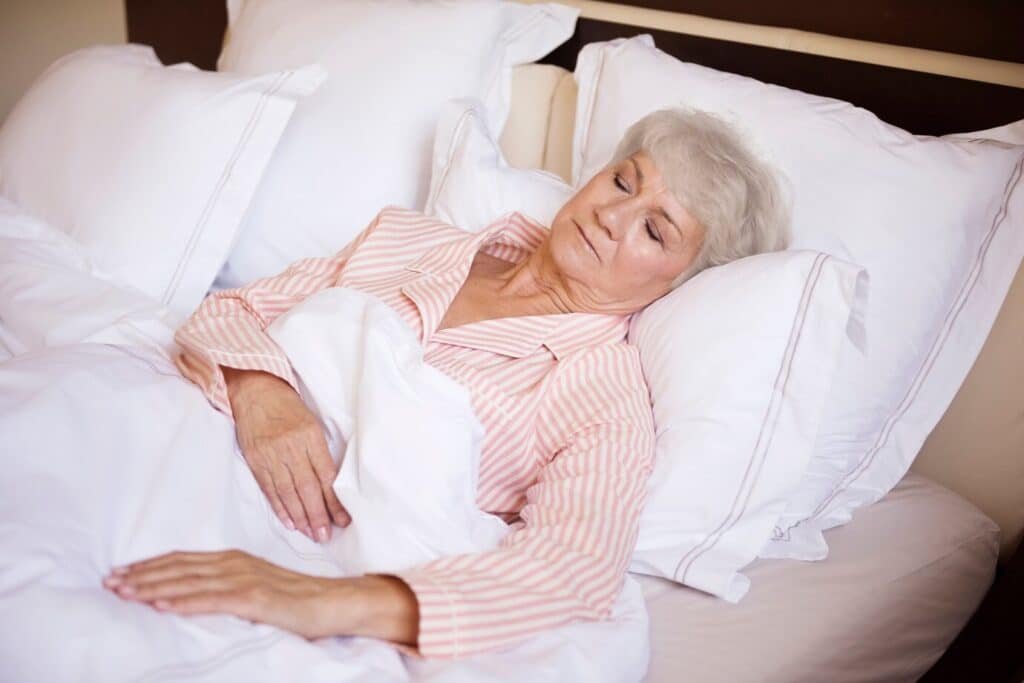Understanding the Importance of Restful Sleep in Senior Years
Our sleep patterns often change as we age, but the need for restful sleep remains crucial. At Westmont of Riverside, we understand that a good night’s sleep is key to maintaining physical and mental well-being in our senior years.
The Science Behind Senior Sleep Patterns
Research shows that as we get older, the structure of our sleep changes. Seniors tend to have a harder time falling asleep and more trouble staying asleep than younger adults. Understanding these changes is the first step in addressing sleep issues.
Effective Strategies for Better Sleep
At Westmont of Riverside, we believe in a holistic approach to achieving restful sleep. Here are some effective strategies:
Create a Restful Environment
A comfortable sleeping environment is essential. This means a quiet, dark, and cool room. Invest in a comfortable mattress and pillows that support your body well.
Establish a Regular Sleep Routine
Consistency is key. Going to bed and waking up simultaneously each day can significantly improve sleep quality.

Establish a Regular Sleep Routine
The Role of Diet and Exercise
What you eat and how much you move during the day can impact your sleep.
Nutritional Tips for Better Sleep
Avoid heavy meals, caffeine, and alcohol close to bedtime. Instead, opt for light, sleep-promoting snacks like warm milk or chamomile tea.
The Benefits of Regular Exercise
Moderate daily exercise can help you fall asleep faster and enjoy deeper sleep. However, avoid vigorous workouts close to bedtime as they might have the opposite effect.
The Impact of Stress on Sleep
Stress is a common barrier to restful sleep, especially in seniors. Managing stress is, therefore, crucial for improving sleep quality.
Techniques to Reduce Stress Before Bed
Mindfulness practices such as meditation or deep breathing exercises can be highly effective. Also, engaging in relaxing activities like reading or listening to soft music can help calm the mind.
Medical Factors Affecting Senior Sleep
Sometimes, underlying health issues can interfere with sleep. It’s important to understand and address these factors.
The Importance of Regular Health Check-Ups
Regular check-ups can help identify and manage health conditions that might be affecting sleep, such as sleep apnea or restless leg syndrome.
Medications and Sleep
Some medications can disrupt sleep patterns. Seniors should discuss their medication regimen with their healthcare provider to ensure it’s not impacting their sleep.
Sleep Aids: Understanding the Options
While natural methods are preferable, sometimes sleep aids might be necessary. However, they should be used cautiously.
The Pros and Cons of Sleep Medications
Sleep medications can provide short-term relief but are not a long-term solution. They can also have side effects, particularly for seniors.
Natural Sleep Supplements
Natural supplements like melatonin can be an alternative, but it’s important to consult with a healthcare provider before starting any new supplement.
Incorporating Relaxation Techniques
Relaxation techniques can be a powerful tool for achieving restful sleep.
Guided Imagery and Relaxation Exercises
Guided imagery and relaxation exercises can help the mind and body relax and prepare for sleep.
The Role of Aromatherapy in Sleep
Aromatherapy using essential oils like lavender can create a calming environment conducive to sleep.
Staying Active and Socially Engaged
An active lifestyle and social engagement can positively impact sleep quality for seniors.
The Benefits of Daytime Activities
Participating in daytime activities, especially socially engaging ones, can help regulate sleep patterns and promote better sleep at night.
Social Connections and Sleep
Maintaining social connections is not only important for mental health but also for sleep. A sense of community and belonging can reduce stress and improve sleep quality.
Tailoring the Environment for Sleep
The sleeping environment plays a crucial role in achieving restful sleep.
The Importance of a Comfortable Bedroom
Ensuring the bedroom is comfortable, quiet, and dark can significantly improve sleep quality. Consider room-darkening shades and a comfortable, supportive mattress.
Controlling Noise and Light
Minimizing noise and controlling light exposure in the evening can signal to your body that it’s time to wind down.
Embracing Restful Sleep at Westmont of Riverside
At Westmont of Riverside, we understand the unique sleep challenges seniors face. By implementing these strategies and making small changes in your daily routine, achieving restful sleep can be more than just a dream. It’s about creating a lifestyle that supports both your mind and body.
Remember, you’re not alone in this journey. If you’re struggling with sleep, our team at Westmont of Riverside is here to help. We believe in a community approach to wellness, where every aspect of your well-being is our priority.
Call us now
For more information or assistance in achieving restful sleep, don’t hesitate to reach out to us at 951-697-2100. Let us help you find your path to peaceful nights and vibrant days.








